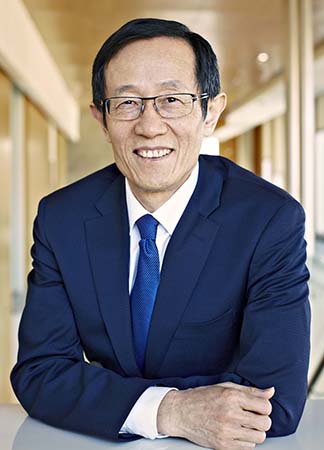York University Faculty of Science Dean Rui Wang has been elected as the new president (2022-24) of the Canadian Council of Deans of Science (CCDS).
The CCDS is a national association of senior academic leaders who have responsibility for post-secondary science faculties and schools at Canadian universities.
CCDS aims to facilitate national discussion of issues that concern all science deans in Canada, and to provide opportunities for networking and information sharing. The group hosts an annual conference, which is usually held in May. Wang previously held the role of vice-president & secretary of CCDS from 2020-22.

“I look forward to continuing my work with CCDS in the role of president,” says Wang. “Collaboration and information sharing across institutions and with government and funding agencies at all levels are key to our success in promoting science education and research in Canada, and CCDS plays an important role in facilitating these.”
Wang has been the dean of the Faculty of Science at York University since January 2020. Previously, he was York’s interim vice-president of research and innovation, and inaugural deputy provost Markham Campus. Before joining York University, he held the position of vice-president of research at Laurentian University from 2015-18 and vice-president of research, economic development and innovation at Lakehead University from 2004-14. He was a professor of physiology and leader of both the Cardiovascular Research Group and the Cardiovascular and Respiratory Network at the University of Saskatchewan from 1997-03.
Wang is an international leader in the biomedical study of a group of small molecules of gas known as gasotransmitters, a category that includes nitric oxide, carbon monoxide and hydrogen sulfide (H2S). His research has been supported by the Canadian Institutes of Health Research, the Natural Sciences & Engineering Research Council of Canada, the Social Science and Humanities Research Council of Canada and the Heart and Stroke Foundation of Canada, and over the course of his career he has received more than $13 million in research funding.
He has published 300 peer-reviewed papers and edited three books. His publications on H2S biology and medicine have received the highest total citations in this field in the world. He is also one of world’s top two per cent scientists for career impact (out of a total of eight million scientists). He has been invited to give 173 lectures and keynotes around the world. He has trained more than 125 graduate students, post-doctoral Fellows, visiting scientists and other research personnel.


